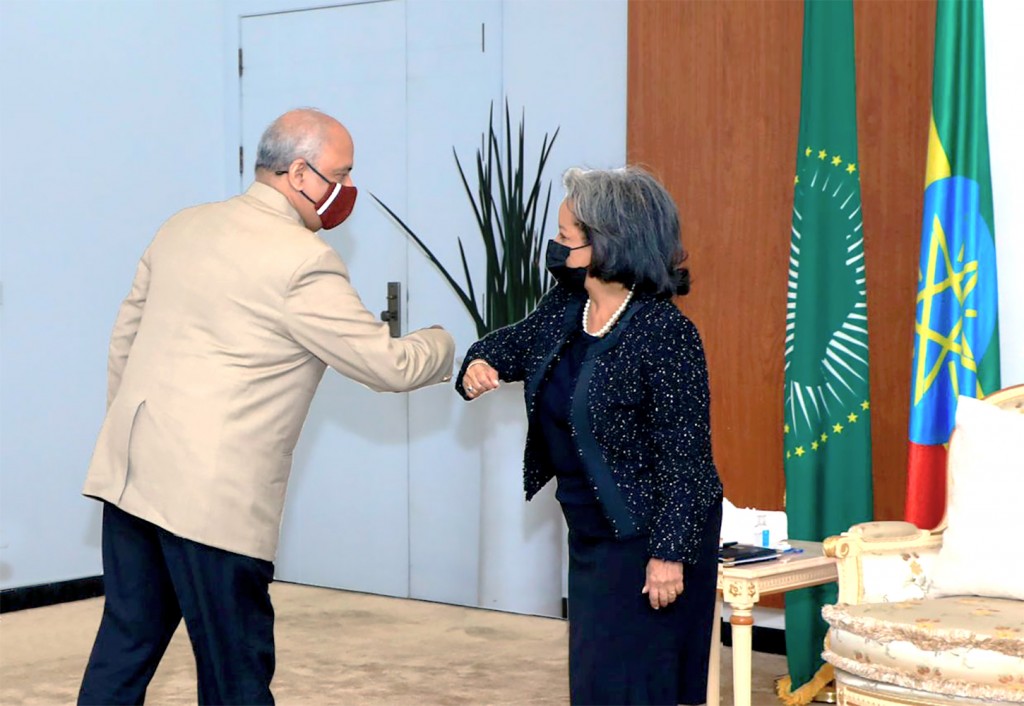As RI president you chose to visit Africa — seven countries — over 20 days. Why so much time and priority for the African continent?

I feel that apart from South Asia, if there is a huge potential for growth in membership, and doing service projects, it is in Africa. I’d never been there but have always believed so. Right from the time service became the mainstay of Rotary, our organisation has thrived in places where there is a need for service. In such places, through service projects, we can also showcase the work that Rotary does. If Rotary has thrived in India and rest of South Asia, it is mainly because we can showcase the work that we do and people want to become part of that work through Rotary.

But somehow this was not adequately tapped in Africa, so I took the decision to visit Africa, and I wanted to go there earlier rather than later in the year, so that if there are gains to be made in membership these could happen earlier, increasing their impact. And I believe the strategy paid off.
I told the heads of government that I met that apart from buying the vaccines, tell us what you want and we are here to help. Creating awareness is a big challenge, there is so much vaccine hesitancy there.
Can you give us an example?
We visited the Zone 22 Institute held in Yaounde, the capital of Cameroon; which included 52 of the 54 countries. We saw amazing diversity… around 400 attended physically and 900 attended online. Meeting fellow Rotarians from Africa in person, talking to them, and encouraging them to serve to change lives via Rotary, was very empowering. During our visit, we met 9 out of 17 district governos. I had requested them to come with their membership chairs. Asked for a membership target, they said they would together do a net gain of 12,000 members. Now there are 17 governors in all in that region, so I extrapolated the numbers and surmised a net gain of 20,000 during this year. Even if that doesn’t happen, I would be happy with 15,000, as the earlier estimate given to me was 5,000, which I thought was rather low for a continent as huge as Africa. Now I am certain the net gain in membership will hover around 15,000.
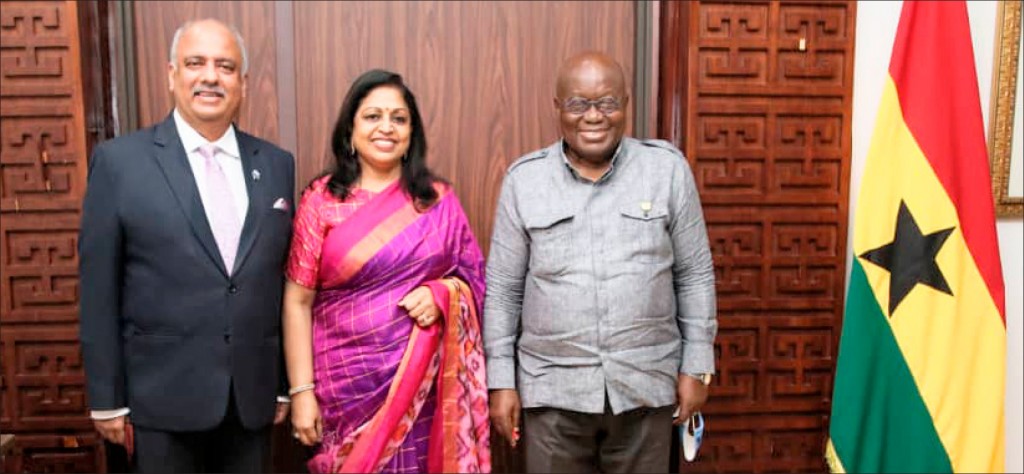
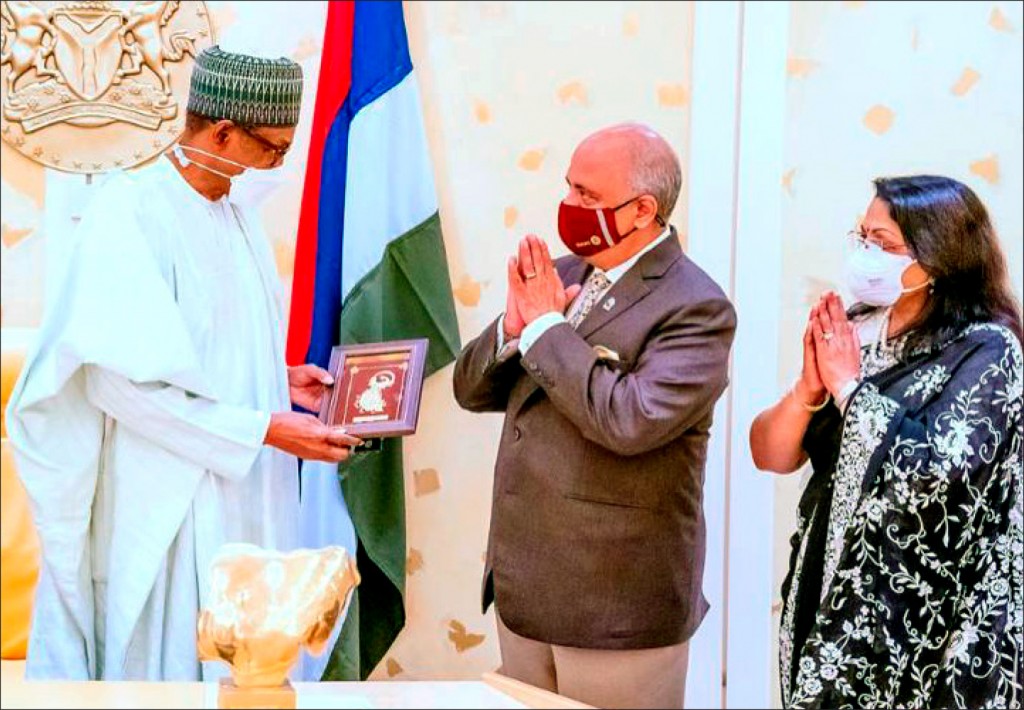
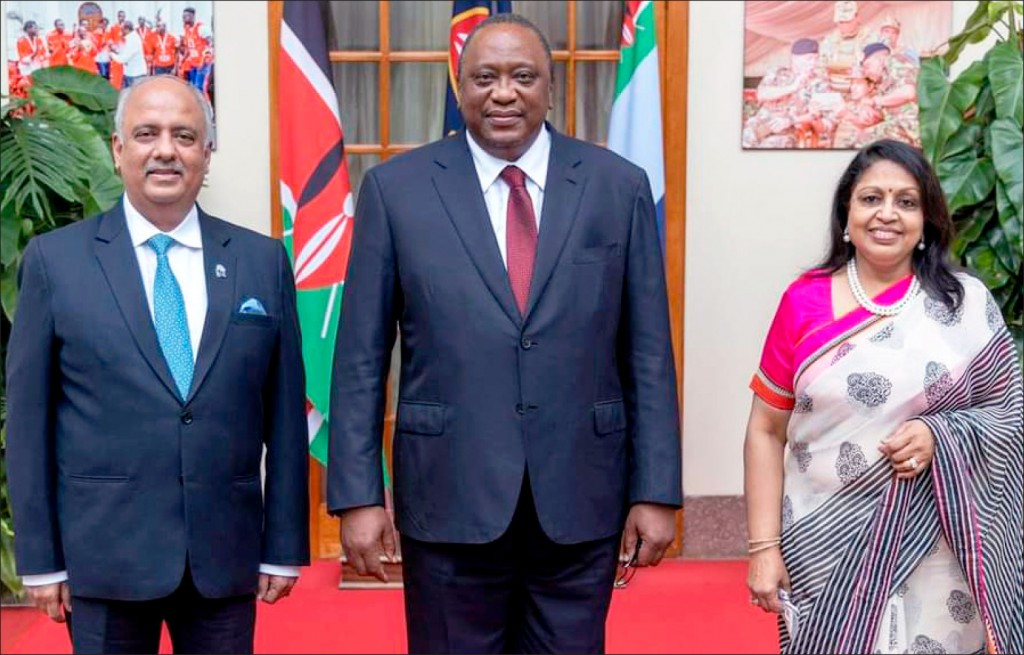

In a social media post you said you were most impressed about 13-year-old girls making reusable sanitary pads in one project you visited. Tell us more about that, as it is also connected with empowering girls, one of your pet themes for your year as president.
Oh yes, I am so happy to note that the programme of empowering girls has caught on so well. Wherever I went, people were so passionate about it and wherever I visited I saw projects to empower girls in the forefront… whether it was at the Cameroon or the Prague Institute, empowering girls was the main programme. And Rashi and I saw so many projects associated with that.

In Yaounde, Cameroon, we had a chance to see an impactful campaign called Pad-a-Girl. RI District 9141 had organised a two-day intensive training session for over 500 girls to make reusable sanitary pads. To see girls as young as 13 years old, producing their own sanitary pads was indescribable. We saw these girls in a big hall, and all of them were sewing reusable sanitary pads. And Rashi also sat down with them and stitched a pad. There is a company in this business, and its representatives were training these young girls, supplying the material, monitoring their work and doing quality control. Their objective is to train 2,000 girls, who in turn can further train 20,000.
A single adolescent girl using disposable sanitary pads for two years would cost around $50. But the cost comes down drastically to just $2 for these reusable ones, so there will be a saving of $48 per girl. And look at the benefit to the environment, Rotary’s latest and seventh area of focus, by not disposing of pads after a single use. Actually, several of our focus areas get served — environment, empowering girls, health and sanitation. This project really warmed my heart.
I feel Rotary’s importance in people’s eyes will depend on how we position it. And this we need to do at the highest level.
What were the other remarkable projects that impressed you?
Giving scholarships to girls who formed part of the internally displaced population (IDP), which is a big problem in many regions of Africa, where people are displaced due to terrorist activity. These girls had to move away from their homes in their own country and live in makeshift places. Rotary is helping such girls with their education.
I also attended a huge project on tree plantation in the Ivory Coast and also Kenya, where Rotarians are giving 10 million saplings.

One of your major discussions with the heads of state you met was regarding Rotary’s help in vaccinating people. But isn’t the biggest challenge faced by African countries related to inequitable access to Covid vaccine?
We are clear about one thing; we’re not getting into the area of procuring vaccines, because that will mean buying the vaccines. RI has taken the decision that our eyes are still on polio eradication and we are not going to buy Covid vaccines.
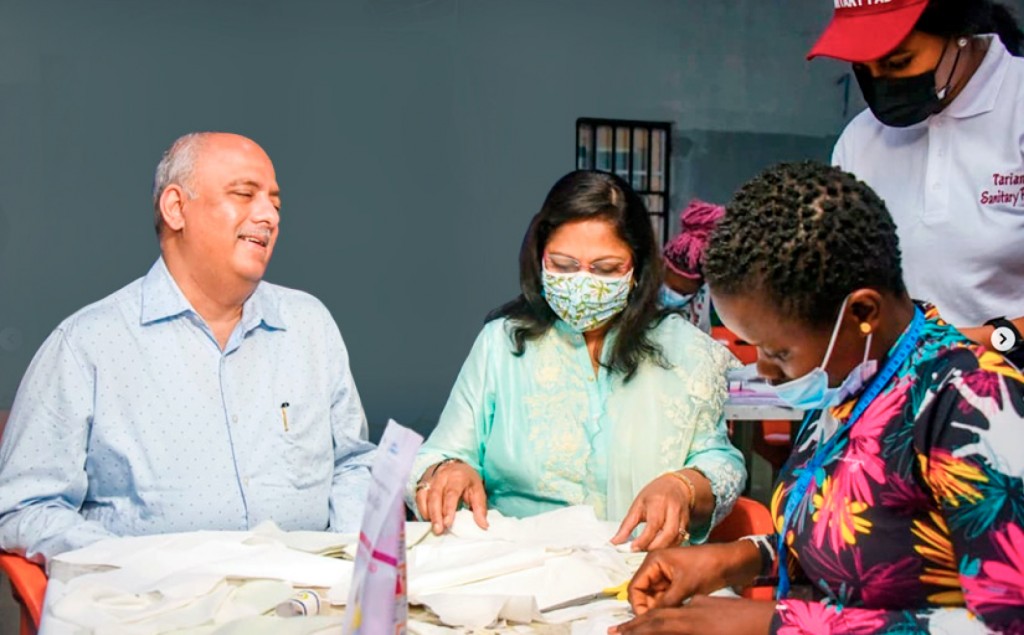
So I was clear on this aspect when I met heads of government… I told them apart from buying the vaccines, tell us what you want and we are here to help. Creating awareness is a big challenge, there is so much vaccine hesitancy there. People simply don’t want to take vaccines. In Cameroon, the general feeling, including among some Rotarians, was that we won’t get Covid, as we take such strong herbs, and so on. Maybe their internal immune system is better or whatever the reason, the incidence of Covid is so much lower in those countries compared to what we find in the US or India… far fewer people are being infected or dying due to Covid there.
So I told them that Rotarians are prepared to give all help related to vaccination, maintaining the cold chain, raising awareness, etc.

Everywhere, I, as the RI president, got the honour that is reserved for a head of state. It was so great to see that Rotary is so mature in Africa, has an excellent profile and great connectivity.
On what other areas do Rotarians need to focus in Africa?
Africa is the jewel in the crown of Rotary. It just needs to be polished a little and the Rotary leadership has to go there to polish this jewel. I’m happy I went there and I am going to visit Africa two more times during my presidential year; one for the presidential conference in Mozambique in March 2022 and before that, I’d like to visit North Africa — countries such as Egypt, Morocco, Tunisia, as the membership is higher in those parts of Africa.
Would you like to highlight any other aspect of your African trip?
The most important aspect of my trip was that at each of the places I made it a point to meet the president or the prime minister of the country. And that was the highlight, which is very important. I feel Rotary’s importance in people’s eyes will depend on how we position it. It is imperative to position Rotary properly. On one side is the great work we do, and the public image that it creates. Unless we tell our story, nobody will know about Rotary. But that story has to be told at the highest level.

I’ve made it a point to tell Rotary’s story at the highest level; I did it to each of the heads of state I met in Africa. I’d like to reiterate the importance of how we position ourselves. If we do it casually, we will be taken casually. An aura needs to be created. The other important aspect of my visit was that to each of these heads of state, Rotary had something to offer, and not to request or ask.
In the Ivory coast, I was pleasantly surprised when just as I started to talk about the literacy programme, the head of state said, “I know all about the TEACH programme.”
Can you elaborate?
On behalf of RI, I told the government heads that if you need anything to be done in our areas of focus, we will help you out. For example, the health infrastructure in the African countries I visited is not too great. Prior to my visit, I had found out how many eye hospitals were there in Kenya outside Nairobi. There weren’t many. I told the Kenyan president that we are ready to set up an eye hospital for you, provided you give us the building. He said how many eye hospitals can you set up? I said as many buildings as you can give us. He said: ‘Mr Mehta before you reach your destination, the buildings will be given.” He said the same for blood banks.
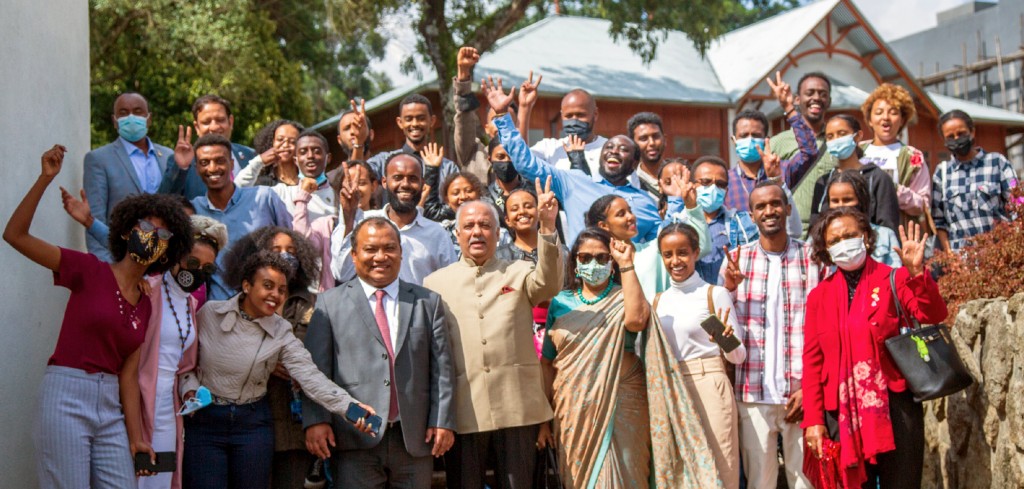
He got up and said can I shake hands with you? Normally I don’t shake hand during Covid times. Now Kenya is doing well in certain parameters compared with some other African countries, but needs are there. Setting up an eye hospital needs two global grants; one to set up and the second to run it for about 18 months. I know this from experience, having set up so many eye hospitals. Next, I offered the e-learning programme and all of them lapped it up. In the Ivory coast, I was pleasantly surprised when just as I started to talk about the literacy programme, the head of state said, “I know all about the TEACH programme.”
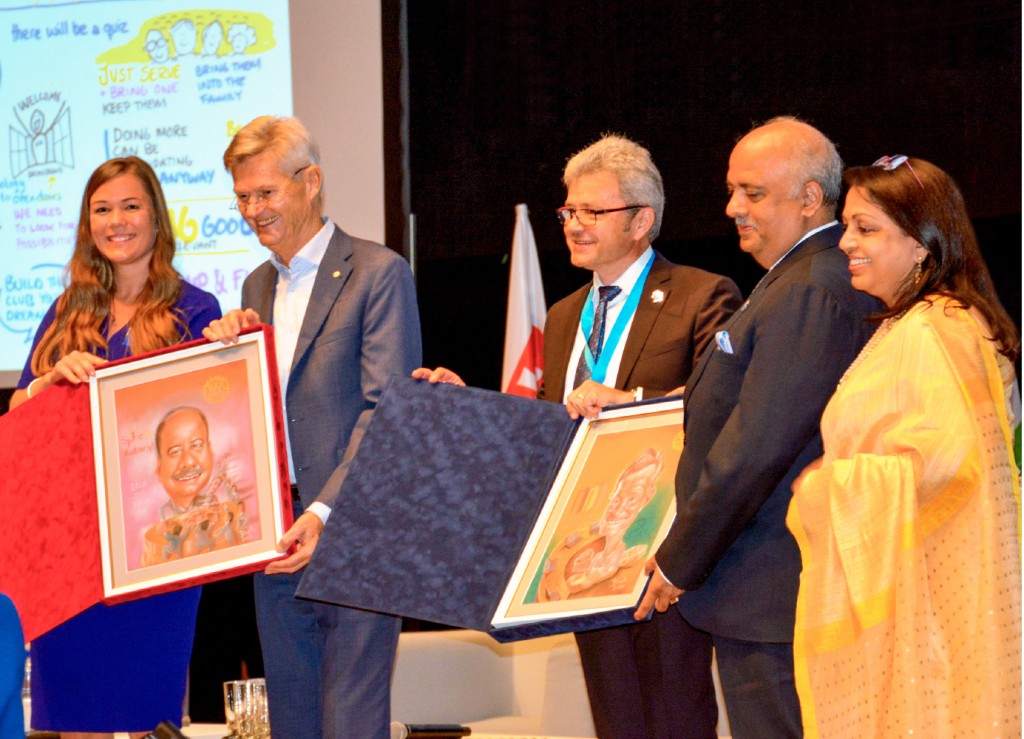
We have already made some e-learning content for a pilot project in Togo, where the content is translated into French, and the images are substituted with African pictures. Now that there is so much interest, demand and need, we can send it to Ghana, Kenya, Ethiopia, etc.
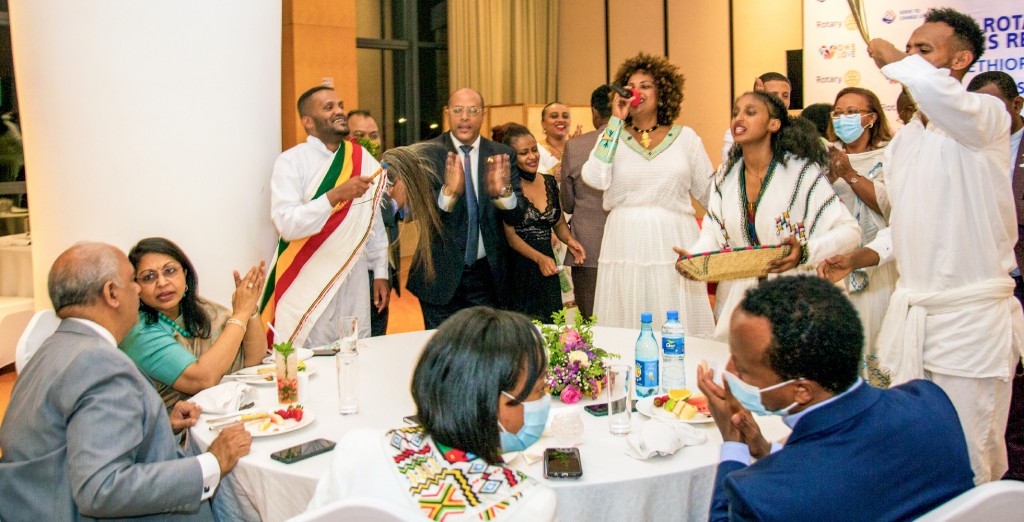
I must once again mention the deep interest in programmes to empower girls; the icing on the cake was the resolution passed by the Ugandan Parliament. They invited 23 of us and the resolution talked about the humanitarian work that Rotary has done around the world, and the impact it has made on polio eradication, including in Uganda.
In all countries, I, as the RI president, got the honour that is reserved for a head of state. It was so great to see that Rotary is so mature in Africa, has an excellent profile and great connectivity; 20 of the parliamentarians who go up to speak were Rotarians; at least 30 to 40 MPs in those countries I visited were Rotarians.






